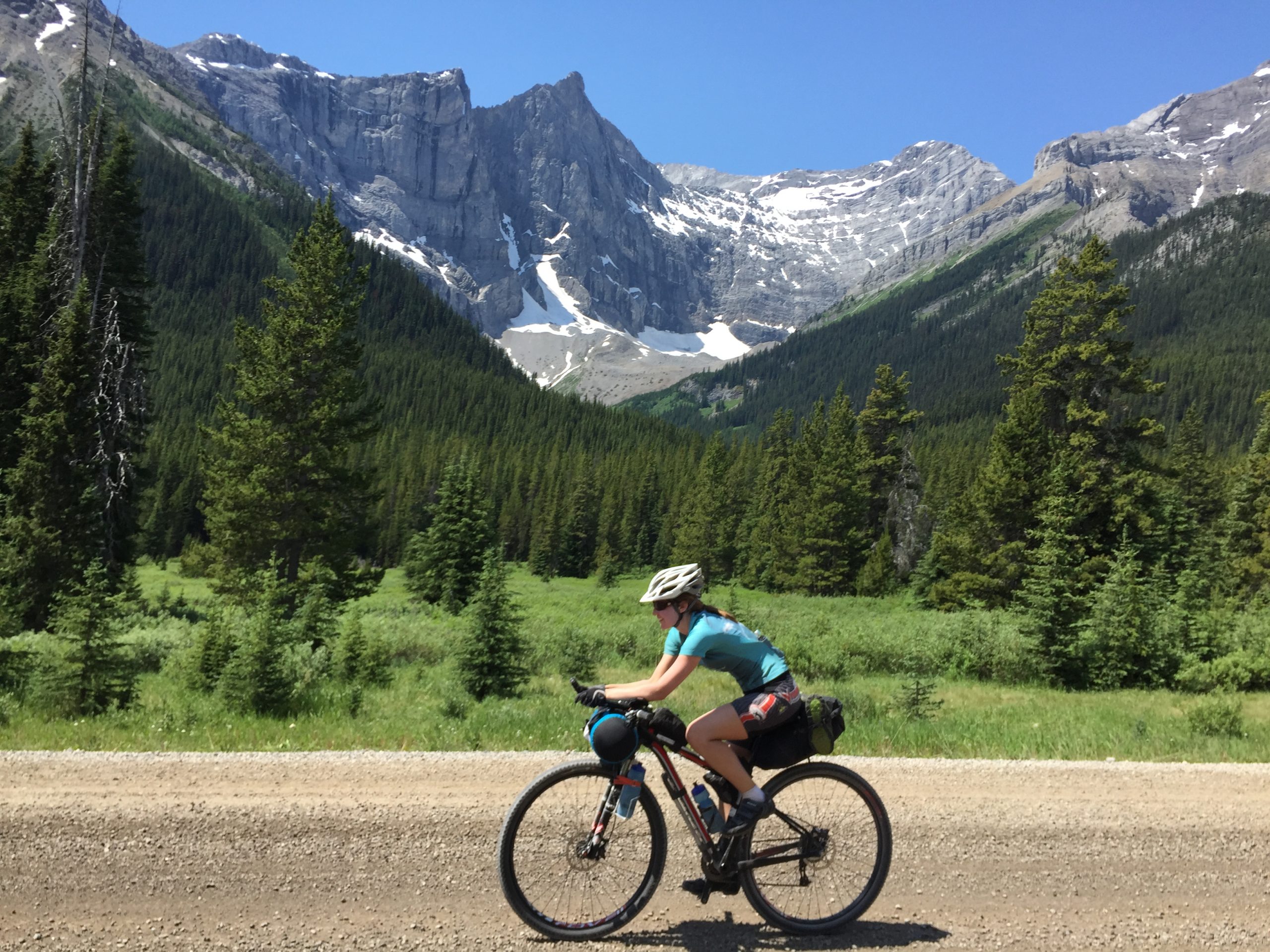
Libby Blanchard completes world's toughest bike race route in just 37 days.
Taking in the desert aroma after rain, watching clouds and dodging or waiting out thunderstorms and slowing life down to land and people and relationships.
Libby Blanchard
A Gates Cambridge Scholar spent the summer cycling 2,900 miles across the Rocky Mountains towards Mexico along the longest off-pavement bike route in the world.
Libby Blanchard [2012] rode from Banff in Canada (257 miles north of the American border) to the US-Mexico border.
She took the Great Divide Mountain Bike Route, a transnational mountain bike route that follows the North American Continental Divide from Alberta, Canada, across the United States to the Mexican border. The route crosses the Continental Divide 30 times in some of the most undeveloped and wild areas of Canada and the US. The route traces past Glacier, Yellowstone and Grand Teton National Parks.
Libby did the ride with her husband. The route is the setting for the Great Divide race, deemed "the world's toughest bike race" by Outside magazine, even tougher than the Tour de France. Although they didn't race the route, Libby and her husband's pace was fast. They completed the ride in 37 days, averaging over 78 miles a day including rest days, despite riding 200,000 feet of elevation gain. This is in comparison to the recommended 77 days to complete the route by the Adventure Cycling Association. Despite this, they still had time to take rest days in scenic locations such as Grand Teton National Park and Steamboat, Colorado. Blanchard rode the furthest she has ever ridden in a single day – 137 miles – during the journey.
Highlights of the journey included seeing black bears and their cubs in Canada and Montana, seeing wild horses in Wyoming's Great Basin and eating a whole apple pie in Pie Town, New Mexico. "There's something deeply meditative on your day's work which comes from moving yourself and your belongings through your own power. Taking in the desert aroma after rain, watching clouds and dodging or waiting out thunderstorms and slowing life down to land and people and relationships," says Libby.
She has been an avid cyclist for the last decade, which included road racing in America, in the Pacific Northwest, in an elite category. She credits the accumulation of miles and riding time over the last decade and a 1,000 mile training ride in Andalucía, Spain, undertaken earlier in the spring, as the training she needed to prepare for the Great Divide.
The couple tracked their ride via GPS and Libby blogged about it on the Huffington Post.












